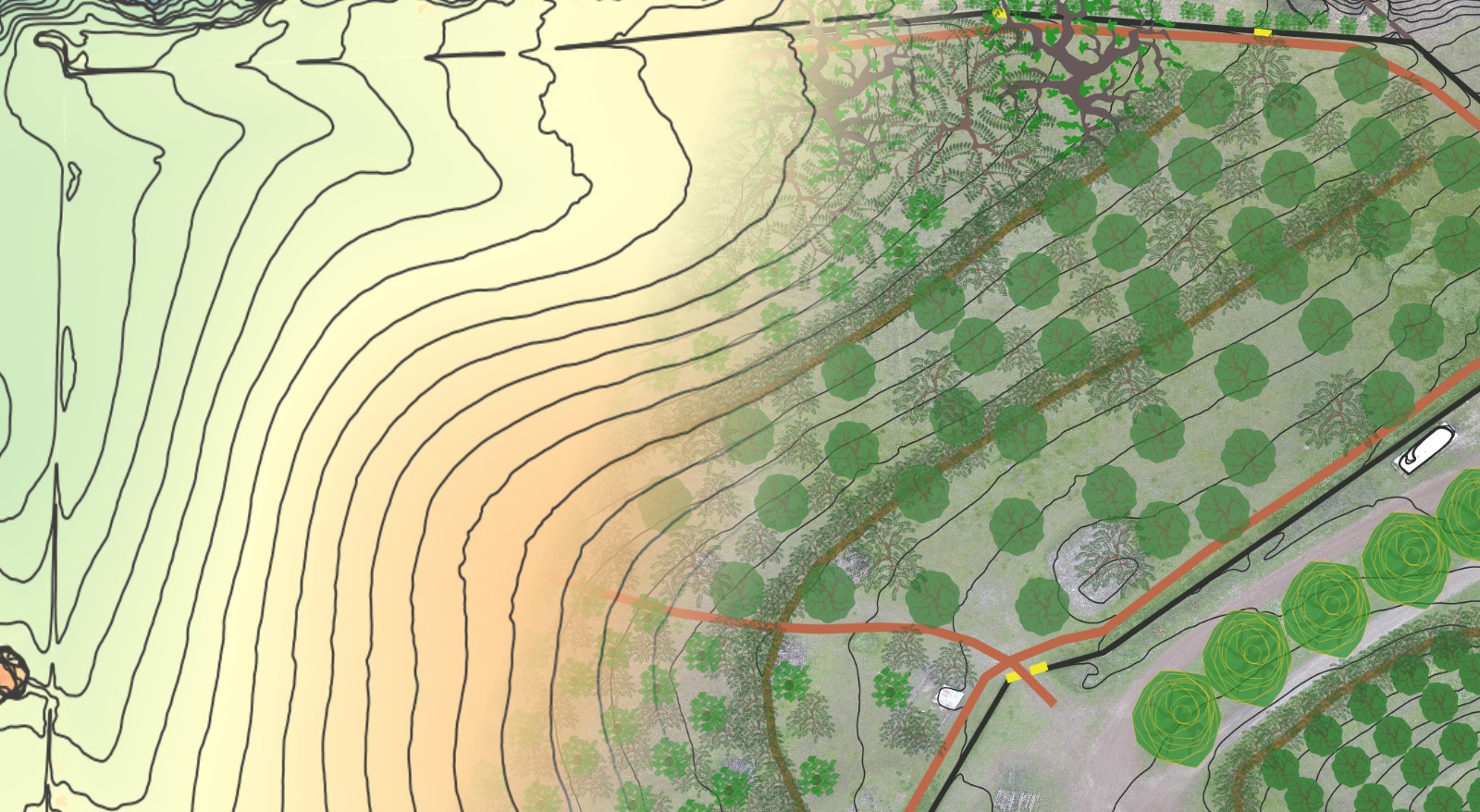
~ The Regenerative Agora ~
Counter-Economics For Stewards Of The Future
Welcome To The Regenerative Economics Series
Regenerative Economics series is all about creating new ways to transact value outside the boundaries of State power, in service of Mother Earth, her people and creatures, and future generations.
- The Regenerative Agora: Counter-Economics For Stewards Of The Future
- Borrowing Without Intent To Repay: How Modern Fiat Currency Systems Concentrate Wealth By Design
- Creating Wealth With The 8 Forms Of Capital
- The 7th Generation Principle: Designing Ecosystems For Continuity Across Generations
- Exchanging Value In The Regenerative Agora: Cryptocurrency As A Medium Of Exchange
How can we go about creating the new systems, business models, value systems and infrastructure of a regenerative society when much of that work is arbitrarily outlawed or suppressed by the power systems that dominate our current culture?
This post is for those of you interested in creating that world worth inheriting, whether or not “permission” to do so has been granted by the powers that be.
A world in which 7th Generation thinking has become so deeply integrated into daily life that it forms the very basis of culture – one rooted in connection to place and conscious of its role as a steward of the future – where socially- and economically-fulfilling lives are the default yield of that shared lifeway.
This vision represents a very substantive change from the world we currently inhabit. In order to lay a foundation for the ideas presented in this article, we necessarily begin with the following pre-supposition:
Mainstream, state sponsored and enforced economic theory and practice has herded humanity as a whole onto a degenerative trajectory with respect to environmental integrity, social cohesion and individual well-being.
We are aware that such a statement can be taken to mean many things depending on any previously held ideological perspectives that you may hold. Please note, this article is not an attempt to change your mind, nor convince you that some of your previously held ideas are wrong, or that “the other side” is out to get you. It is simply our best effort in this moment to illuminate another way. One that is predicated upon peaceful interaction and respect for individual sovereignty in every sense of the word – something that nearly all people are in favor of (at least with regards to their own person), no matter what perspective they may currently hold.
This other way cannot be imposed upon others. It cannot be coerced, legislated or regulated into existence. It can only arise through expanded consciousness – first in a single mind, then spreading virally, across broad swathes of human beings, until rooted in a collectively held consciousness – what we will call culture for the purposes of this discussion.
This other way is called Counter-Economics. Counter-Economics is practiced in an ever-changing free market space called the Agora (more on that below).
Welcome to the Agora of Regeneration.
What Is Counter-Economics?
“Counter-Economics is the theory and practice of all human action neither accepted by the State nor involving any initiatory violence or threat of violence.”
– Samuel Edward Konkin III
Counter-Economics can be most easily grasped when compared with what it is not – what we will call Establishment Economics.
Establishment Economics
Acts of coercion (initiatory violence or threat of violence) and their economic consequences.
vs.
Counter-Economics
All non-coercive, free and peaceful acts in general
Counter-Economics exists and can be practiced outside the boundaries of State power (the State being that institution that has a legal monopoly on the use of force within a certain arbitrary geographic border). State power exists at the intersection of three things:
- Scope – laws on the books.
- Reach – boots on the ground.
- Will – what lives in the heart of the agent of the State.
Counter-Economic activity can be performed in the white, grey or black market, for it is not defined by the legality of a thing or action, but instead the morality of it. Counter-Economic activity encourages people to actively ignore or break laws when it does not involve initiating violence or coercion. It is necessary here to distinguish between legal and moral.
“One has not only a legal but a moral responsibility to obey just laws. Conversely, one has a moral responsibility to disobey unjust laws.”
– Martin Luther King Jr.
Moral actions are understood to be those that are undertaken voluntarily (without coercion or threat of violence) and that do not harm other people.
Legal actions may or may not be moral, just as moral actions may or may not be legal.
There are countless examples in today’s society of acts that are illegal yet entirely moral.
For example, if one were to grow a certain restricted plant (you know the one) in their home garden , ingest it, and experience the effects of that ingestion in a way one deems appropriate and that brings no harm to anyone else, this would be illegal in many places, and act as grounds for the state to seize one’s property and/or liberty. This action, however, is entirely moral from the perspective that it was undertaken voluntarily (no one was forced to grow the plant or ingest it) and did not harm any other people.
In order to move towards building and living within a regenerative economy, there will necessarily be a fair amount of law-breaking required, as many of the moral actions aligned with the principles of regeneration are currently deemed illegal (i.e. building a natural home with earthen walls, or having a composting toilet, selling home-made food to your neighbors, or even harvesting rainwater in some places etc).
By engaging in counter-economics we can begin to live and work in the regenerative economy, without waiting for either the current system to fail or for top-down approval of our chosen regenerative lifeways. Indeed, much of what needs building to help soften our economic landing as we exit a growth-imperative economy and enter energy descent will have to be built in the regenerative counter-economy – for only here can we find a paradigm that is equipped to carry us through the turbulent years ahead and into a truly sustainable future – and the liberty required to make such a paradigm manifest.
What Is The Agora?
The word agora describes a central, public place in Greek city states that was the center of economic, political, spiritual and athletic life in the early city states. People would go there to hear public announcements, perform military service, engage in commerce and exchange ideas through conversation – essentially a city or town square at the heart of a particular urban settlement. The word agora acts as the root for two different verbs, both of which lend additional context to the centrality of the agora in city life at the time; agorázō – “I shop”, and agoreúō – “I speak in public”.

We bring the term Agora forward here as a representation of an “open market” – a place where individuals can engage in voluntary interaction with one another, unimpeded by violence or the threat of violence. The agora in the context of counter-economics is a place of consciousness, and represents all activity occurring beyond the limits of State Power, which itself is defined by the amorphous boundaries of Scope, Reach and Will.
The Agora is the only space available to us where we can build many of the elements (physical, social, cultural and spiritual) of a truly sustainable future.
Where Is The Agora Now?
In order to know how to participate in the agora of today we have to know “where” it is. The edges of the agora are not static, rather they are constantly shifting in response to the inevitable and continuous expansion of State power. These edges are formed by a confluence of the following three variables: Scope, Reach and Will of the State.
Scope
The scope of government intervention into private life can be measured by the laws on the books. In our current context, this scope is practically without limit. It is necessary, therefore, to abandon the notion of finding the agora at the boundary of Scope alone, because State power is currently expanding rapidly and claims dominion, in one way or another, over the vast majority of the globe and nearly all facets of human life.
There was a time when looking for legal “loopholes” and then trusting the court system to uphold the law and protect individual freedoms was a semi-viable strategy (often depending on how much currency one could devote to the endeavor). This strategy employed today, however, is not likely to turn out well. The power-hungry “virus” of Statism has been and will continue to supercede the law, thus the law likely provides no safe haven.
Reach
It used to be that in order to be within reach of State power one literally had to be within arm’s length of a State agent. One needed to be within physical proximity to be arrested. Similarly, one needed to be within such physical proximity to engage in a vibrant Agora.
Physical proximity is far less important today than proximity to one’s bank account when it comes to exercising control over an individual. If the State is able to freeze the funds in your bank account it can effectively prevent participation in the Agora, just as physical detention once did. This is where alternative means of exchange and value transaction that exist outside the boundaries of State power become very important. Enter cryptocurrency, which is both seizure resistant and uncensorable, unlike the U.S. dollar or any other modern fiat currency (much more on this in Regenerative Economics – Part 5).
Will
Will is the X-factor. Will to enforce an unjust law must exist in the heart of the State agent. Fortunately, it is actually very difficult to train a healthy human being to persecute their neighbors. The will of the State agent is an important boundary to State power, yet it is difficult to recognize its limits. It is necessary to know the State agent well enough to get a sense for their level of pragmatism (“there’s a law/regulation against that, but I don’t enforce it”) and/or rule-following because “those are the rules / I’m just doing my job.”
What Makes A Regenerative Agora?
An open market by itself may or may not be regenerative. In the Regenerative Agora, human action taken to meet daily needs and create a high quality of life increases the capacity of an ecosystem’s natural function. This increased function manifests as a capacity to support more life over time.
Simply put, the world is made more resilient and abundant by participating in a free and open exchange of ideas, goods and labor that is grounded by the permaculture prime directive and three ethics. Without this ethically grounded and principled approach to participating in the Agora, while interactions may still be far more peaceful than in an Establishment Economics context, they will not necessarily be regenerative.
The Prime Directive of Permaculture
The only ethical decision is to take responsibilty for our own existence and that of our children. Make it now.
Permaculture Ethics
- Care Of The Earth: Provision for all life systems to continue and multiply.
- Care Of People: Provision for people to access those resources necessary for their own existence.
- Setting Limits To Population And Consumption: By governing our own needs, we can set resources aside to reinvest towards the first two ethics.
The Regenerative Agora – the liminal space beyond the Scope, Reach and Will of the State in which autonomous, free individuals interact and exchange with one another in a manner aligned with the prime directive and three ethics of permaculture – lies at the heart of a 7th Generation culture, one in which those alive today conduct themselves with the interests of the generations yet unborn at the forefront of their decision making processes. The Regenerative Agora is the 7th Generation Principle (below) made manifest through human action.
The 7th Generation Principle
A 7th generation systems creates socially and economically fulfilling lives for its inhabitants, whose daily activity patterns regenerate natural ecosystems and increase living capital year over year, such that the economic and social value of natural ecosystems is always increasing, and the value-ing of those systems is transmitted intact across generations.
Indeed every aspect of the 7th Generation Principle can be seen taking place in the Regenerative Agora. A rich ecosystem provides the necessary raw materials, nutrients, climate conditions and space required for its inhabitants to construct lives that are stable and abundant. The activities by which the inhabitants provide for their own existence yield byproducts, primary products or surpluses that increase ecological integrity and capacity for life expression. Furthermore and most importantly, the inhabitants value their way of life and the ecosystem that supports it, and place great importance on transferring this value system to each successive generation.
Walking The Path: Decision-Making For Regenerative Agorists
The Regenerative Agorist (one who participates in the Regenerative Agora) seeks to conduct themselves and their enterprise in ways that constantly move them and their enterprise towards greater levels of regenerative impact, yield abundance and individual liberty.
The following quad chart details two continuums; the Regenerative/Degenerative Process Continuum and the Scarcity/Abundance Mindset Continuum. By overlaying these two continuums atop one another, a simple yet powerful quad chart is created, one that the Regenerative Agorist can use to evaluate their current enterprise, lifestyle, or necessary decision with respect to its alignment with regenerative process and abundant mindset.

The 1, 2, 3, 4, 5 aligned along the Regenerative/Degenerative axis stands for the five categories of resources utilized by human beings, as described in the Permaculture Designer’s Manual on page 16. This acts as a helpful, though not entirely bulletproof, jumpstart to analyzing an enterprise, design element, lifestyle or impending decision with regards to its degree of regenerative vs. degenerative function.
5 Categories of Resources
- Type 1: Those which increase by modest use.
- Type 2: Those unaffected by use.
- Type 3: Those which disappear or degrade if not used.
- Type 4: Those reduce by use.
- Type 5: Those which pollute or destroy other resources if used. (NOTE: This resource category has no place in sustainable design)
We can further define the four poles of this chart as follows:
- For a process to be regenerative is to cycle energy amongst involved elements and the broader life web in a self-reinforcing pattern of increasing integrity, coherence and function. This ultimately increases life expression.
- For a process to be degenerative is to move energy in a linear fashion from integrity, coherence and function to disintegration, incoherence and dysfunction. This ultimately diminishes life expression.
- An abundant mindset is creating, seeing obstacles as opportunities for growth in knowledge, capability, perception and connection.
- A scarce mindset is fear-based and lacks creativity, seeing obstacles as immovable burdens unfairly dealt out by life’s randomness, imposing disability, misperception and isolation.
For a more in depth exploration of these two continuums and how to use them in system design, see Examining The Regenerative/Degenerative Continuum: Nuances Of Ecosystem Establishment.
Explore The Entire Regenerative Economics Series
Regenerative Economics series is all about creating new ways to transact value outside the boundaries of State power, in service of Mother Earth, her people and creatures, and future generations.
- The Regenerative Agora: Counter-Economics For Stewards Of The Future
- Borrowing Without Intent To Repay: How Modern Fiat Currency Systems Concentrate Wealth By Design
- Creating Wealth With The 8 Forms Of Capital
- The 7th Generation Principle: Designing Ecosystems For Continuity Across Generations
- Exchanging Value In The Regenerative Agora: Cryptocurrency As A Medium Of Exchange




